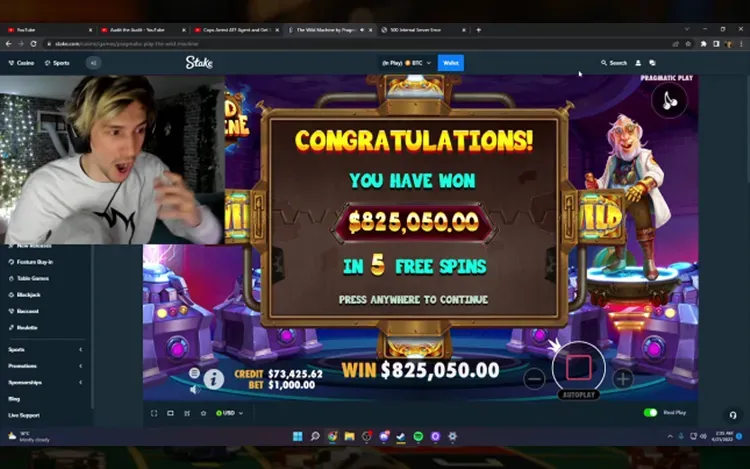In the digital age, influence is currency. Social media stars, streamers, and content creators have woven themselves into nearly every consumer space—from fashion and fitness to finance and yes, gambling. With flashy thumbnails, high-stakes drama, and extravagant reactions, gambling influencers have carved a lucrative niche across platforms like Twitch, YouTube, and TikTok. But beneath the glow of neon graphics and celebratory confetti lies a murkier reality that many viewers overlook.
These online personalities can appear to be casual players striking it lucky, when in fact they may be showcasing carefully curated or even sponsored content. Their influence over gambling habits—especially among young or impressionable audiences—is growing, and so are the concerns about transparency, ethical boundaries, and financial risk.
This guide pulls back the curtain on the dark side of gambling influencers. From staged wins to undisclosed sponsorships and questionable tactics, we examine what’s really happening behind those "epic win" clips and how you can protect yourself when navigating gambling content online. If you're seeking guidance on finding trusted gambling sites, knowing what to watch out for in the influencer world is more important than ever.
Our recommended online gambling sites.
The Appeal: Why Gambling Influencers Draw a Crowd
It’s not hard to see why gambling content thrives online. It combines suspense, risk, and instant gratification—the perfect cocktail for high-engagement entertainment. When influencers hit big wins, the dopamine rush is contagious. Viewers feel as though they’re vicariously participating, riding the rollercoaster of wins and losses from the safety of their screens.
Many of these influencers are charismatic, relatable, and engaging. They interact with live chat, answer questions, and share anecdotes, creating a sense of community. Some are professional players; others are hobbyists. But one thing most of them have in common is the compelling illusion that winning is frequent and achievable. And therein lies the risk.
What’s often missing from these high-octane sessions is the context: how many losses occurred off-camera, how much money was actually wagered, and whether the funds being played with are real or credited by a casino sponsor. Without this crucial information, viewers are left with a distorted perception of how gambling works—and what it costs.
Sponsored Content and Shady Partnerships
Many gambling influencers are tied to affiliate deals or sponsorship arrangements with online casinos. In exchange for promoting a platform, they receive commissions, bonuses, or even a portion of the players' losses. While affiliate marketing in itself isn’t inherently unethical, the lack of clear disclosure can cross serious ethical boundaries.
Some influencers portray themselves as independent players when they’re actually being paid to direct viewers to a particular platform. This is where the concept of transparency collapses. If you’re watching someone gamble with “house money” under the guise of personal funds, the legitimacy of the outcome becomes questionable.
Even more troubling are cases where influencers promote unlicensed or offshore operators. These sites may offer little to no consumer protection, making it extremely risky for followers who decide to register and deposit. Trustworthy creators stick to fully licensed, regulated platforms—typically UK Gambling Commission-approved—and are forthright about their business ties. Unfortunately, many others are not.
Fake Wins and Selective Editing
What you see isn’t always what you get. Many influencers record hours of gameplay, only to upload the most sensational clips: massive wins, near misses, bonus rounds galore. This cherry-picking creates the illusion that success is frequent and the odds are favourable—when in reality, most gambling sessions result in losses.
In live streaming scenarios, the deception can become even more subtle. Some creators use demo modes, bonus funds, or exclusive settings negotiated with casinos that are unavailable to the general public. In these conditions, it’s easier to “win” on screen, misleading viewers about the real chances of success.
This type of content doesn’t just warp expectations—it can also fuel problem gambling behaviours, especially in viewers who chase that same high without understanding the full scope of risk. When the losses come (and they almost always do), those viewers are left with empty wallets and no influencer support to speak of.

Fake Wins and Selective Editing
The Ethical Responsibility of Influence
With great reach comes great responsibility—at least, in theory. Influencers in sectors like health, finance, and skincare are routinely held to disclosure standards and consumer protection rules. Gambling influencers, however, have long operated in a grey zone, often skating around regulation through platform loopholes or ambiguous terms of service.
Fortunately, regulatory bodies are beginning to respond. The UK Advertising Standards Authority and the Gambling Commission have issued guidelines for influencer conduct, including mandatory disclosure of sponsorships, responsible gambling messaging, and age-gating content. But enforcement remains patchy, and many creators continue to skirt the edges of acceptable practice.
Ultimately, it’s up to viewers to ask hard questions: Is this person being paid to promote a site? Are they gambling with their own money? Is the casino they’re using licensed and fair? If the answer to any of these is unclear, caution is advised.
How to Protect Yourself and Your Bankroll
The best defence against misleading influencer content is awareness. Understand that gambling is entertainment, not a pathway to riches. If you're seeking a safe and fair experience, always use trusted gambling sites that are fully licensed and uphold responsible gaming principles.
Before taking any action based on influencer content, do your research. Look into the platform’s licensing, read independent reviews, and check whether responsible gambling tools—like deposit limits, time-outs, and self-exclusion—are available. Don’t be swayed by charisma or camera angles. Instead, be led by facts, fairness, and proven regulation.
It’s also important to monitor your own gambling habits. If you find yourself chasing influencer-inspired wins, it may be time to take a step back and reassess. Gambling should always be a choice, never a compulsion.

The Reality Behind the Reel
The Reality Behind the Reel
Gambling influencers may make the experience look glamorous, but what they don’t show is just as important as what they do. From questionable partnerships to staged wins and undisclosed risks, the dark side of gambling content is a cautionary tale for anyone who engages with it uncritically.
Influencers may shape perceptions, but they should never shape your financial decisions. Protect yourself by seeking out verified information, choosing platforms with integrity, and maintaining a strong sense of control over your gambling behaviour.
And remember: when it comes to finding truly trusted gambling sites—and separating myth from marketing—Gambling Zone is the place to go.








